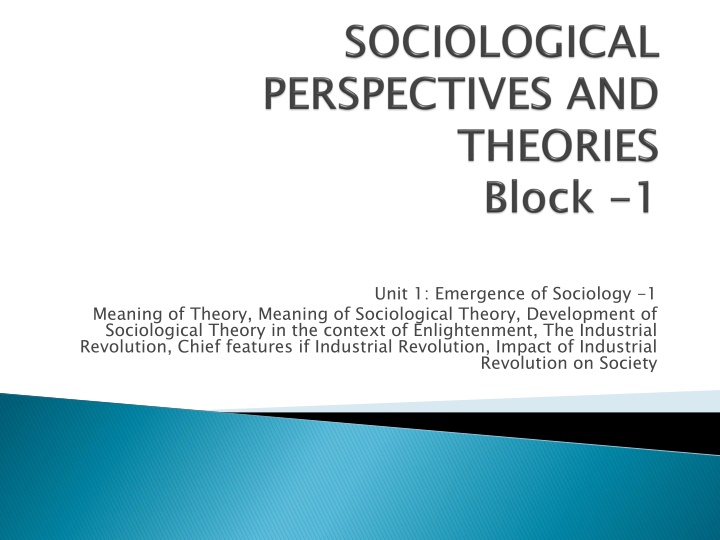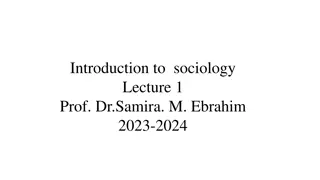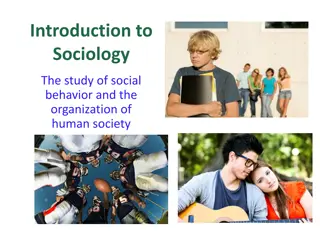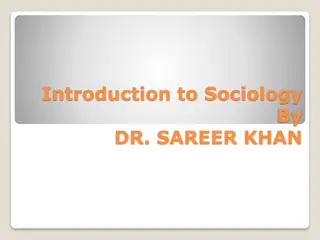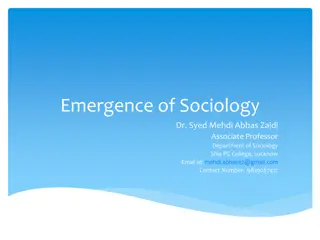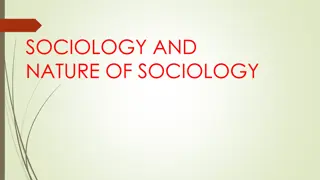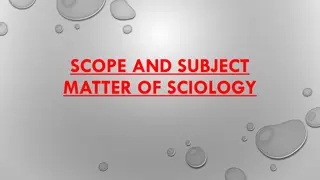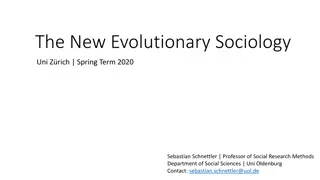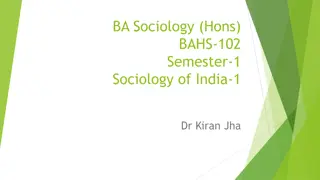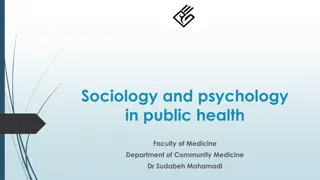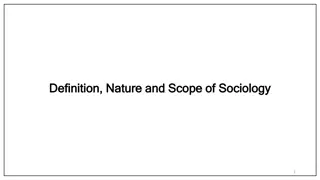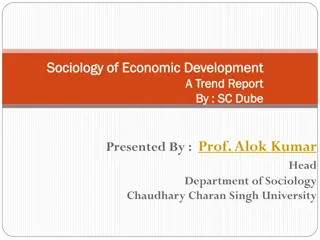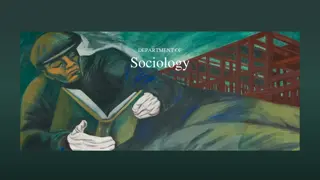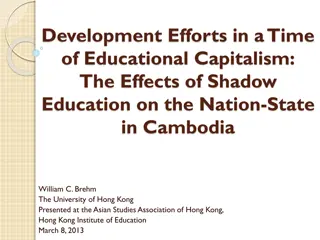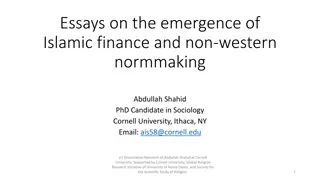Emergence of Sociology: Development and Impact
Sociology theory evolves from Enlightenment and the Industrial Revolution, shaping our understanding of society. Enlightenment highlights reason, progress, and individualism, while the Industrial Revolution ushers in new social classes and challenges. Explore the theories and thinkers that paved the way for modern sociology, examining the profound impact of these historical periods on societal structure and dynamics.
Download Presentation

Please find below an Image/Link to download the presentation.
The content on the website is provided AS IS for your information and personal use only. It may not be sold, licensed, or shared on other websites without obtaining consent from the author.If you encounter any issues during the download, it is possible that the publisher has removed the file from their server.
You are allowed to download the files provided on this website for personal or commercial use, subject to the condition that they are used lawfully. All files are the property of their respective owners.
The content on the website is provided AS IS for your information and personal use only. It may not be sold, licensed, or shared on other websites without obtaining consent from the author.
E N D
Presentation Transcript
Unit 1: Emergence of Sociology -1 Meaning of Theory, Meaning of Sociological Theory, Development of Sociological Theory in the context of Enlightenment, The Industrial Revolution, Chief features if Industrial Revolution, Impact of Industrial Revolution on Society
A theory is a set of relationship between two or more concepts. Theory is a description of why or how a phenomena occurs. It is a set of interrelated concepts and ideas which have been scientifically proven and expand our understanding of people, their behaviour, their societies. Theories are always abstract. Theories can be modified
1. Sociological theory is a set of assumptions, assertions and propositions organized in the form of an explanation or interpretation of the nature, form or content of social action. 2. Sociological theory. 3. DEVELOPMENT theory is related to social
1. Enlightenment is a philosophical movement took place in Europe and later , in North America during 17th-18thcentury. 2. Scientific Method, reason and liberty is the fundamental feature. 3. Prominent thinkers French Philosopher Charles Montesquieu (1689-1755), Rousseau (1712-1778) .
REASON. EMPIRICISM SCIENCE UNIVERSALISM PROGRESS INDIVIDUALISM TOLERATION FREEDOM SECULARISM
ANTI-CLERICALISM ENTHUSISM FOR MEDICAL AND TECHNOLOGICAL PROGRESS A DESIRE FOR POLITICAL CHANGE AND REFORM A BRIEF IN THE PRE EMINENCE OF EMPIRICAL, MATERIALISTIC KNOWLEDGE
Industrial Revolution began in 18th and 19thcenturies in Europe.
A series of mechanical inventions. The factories started to produce goods with the help of machines run by mechanical power. The setting of factory required huge amount of capital and gave birth new classes namely capitalist class and labour class. Mass scale of production and standardization of goods could be possible. Provided employment in large number and also gave rise to labour problems.
1. ECONOMIC CHANGE:: The economy transformed from agricultural to industrial and machine replace people in methods of production. Led rise to Industrial capitalism. As factory became the centre of production, large employment could be possible. The women and children got involved as labourers in production system. Workers became much conscious to protect their rights and interests which gave birth TRADE UNION.
It bought a positive impact on the standard of living of the people because factories produced better quality of goods at cheaper rates for the consumption of the people.
It led to migration. Two new classes arose, namely rich and poor. Concept of colonialism had began and started to exploit the poor and under developed countries. Structure of family changed from joint to nuclear family.
The developed western Countries like franch, Germany, England, Italy, Portugal etc started to rule all over the world and dominated politically, economically and socially. Capitalism established; changed political structure. Led world war I & II . FREE economy policy took place.
Name two important revolutions that led to emergence of sociology. State the meaning of enlightenment. Discuss the social forces behind the emergence of sociology. Explain the basic paradigmatic assumptions of sociological theory. Explain the Impact of industrial revolution.
